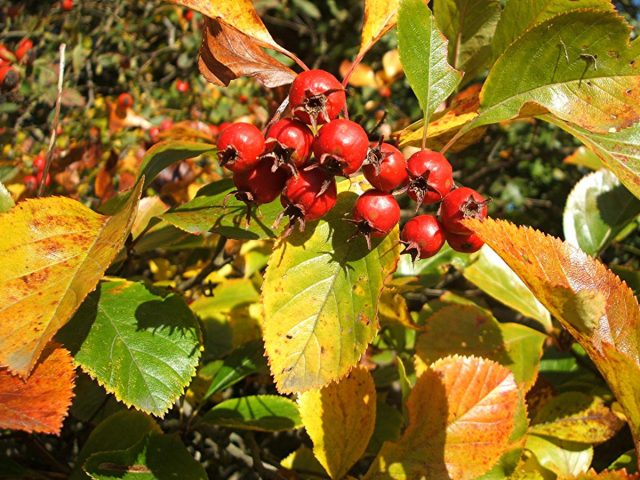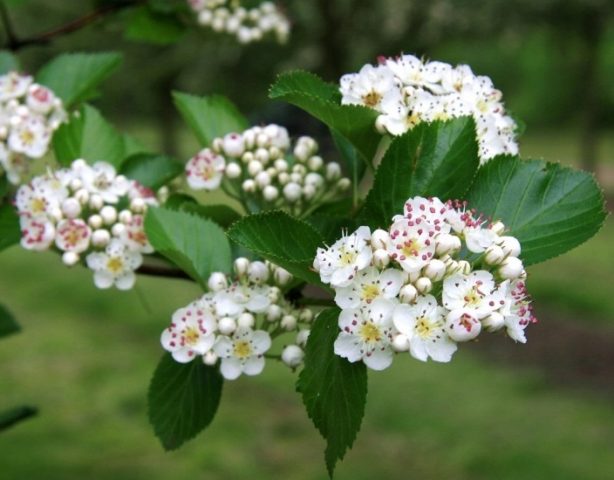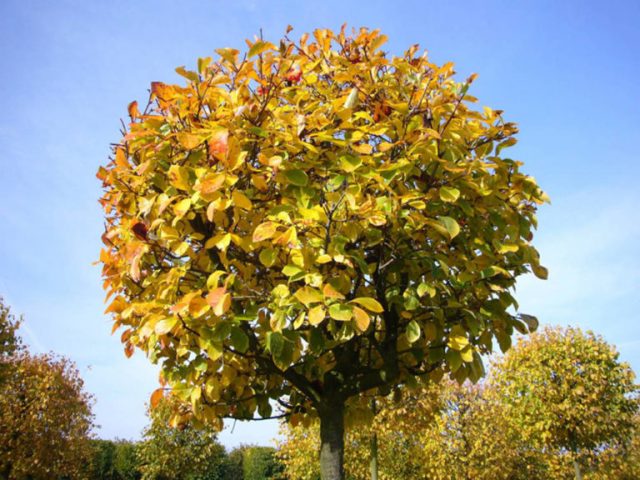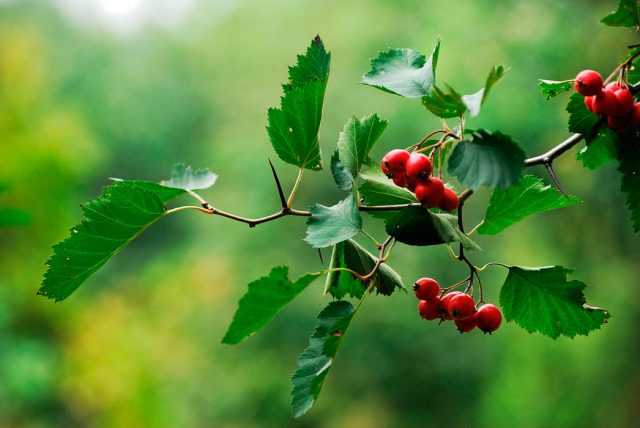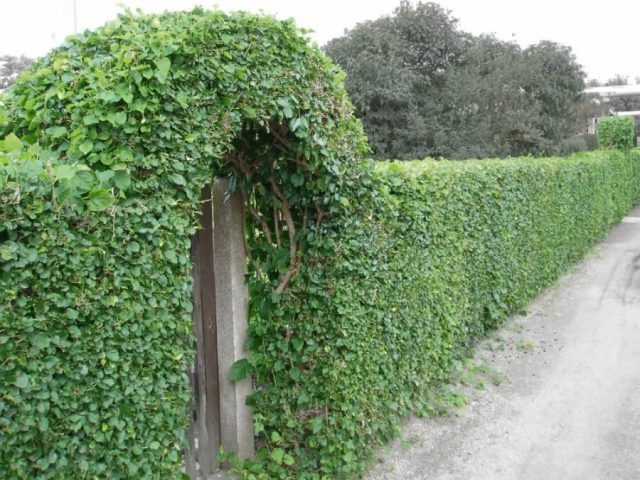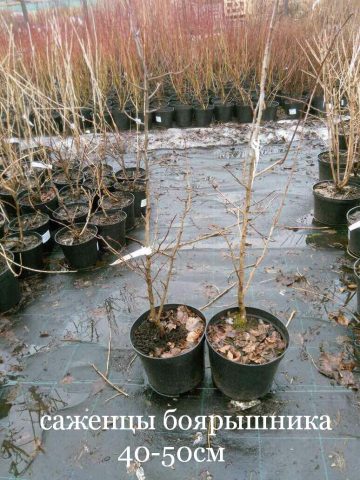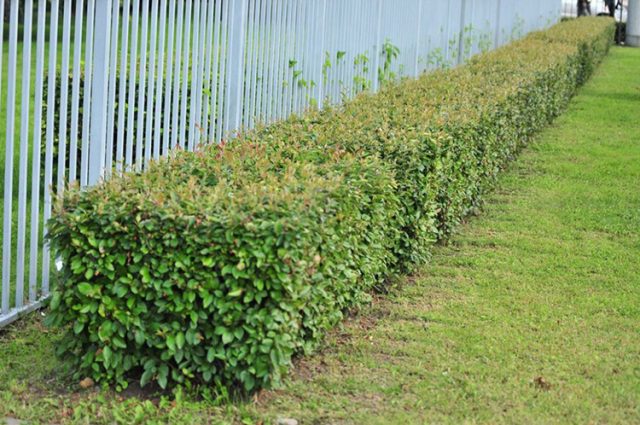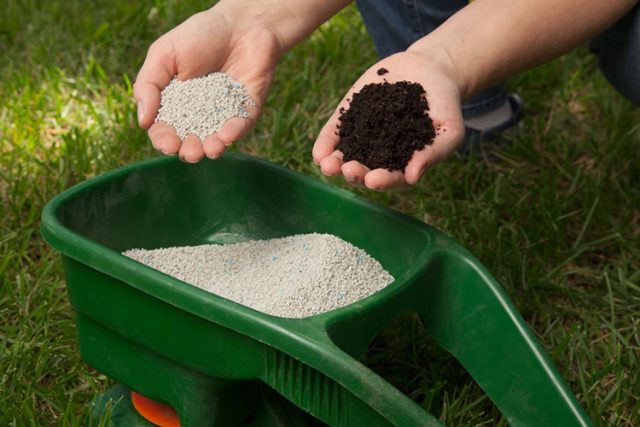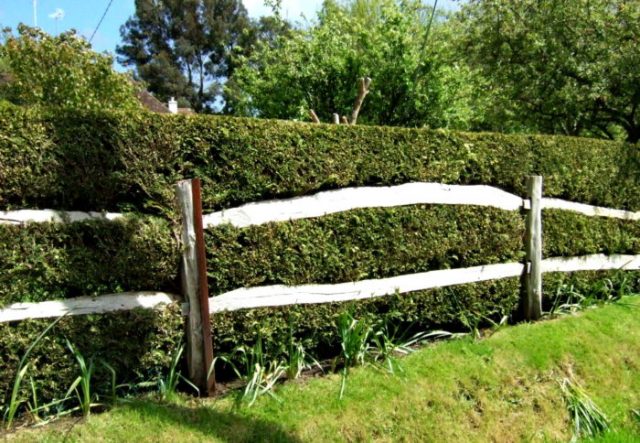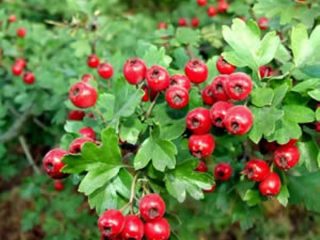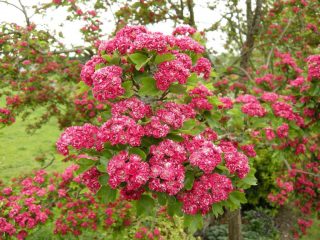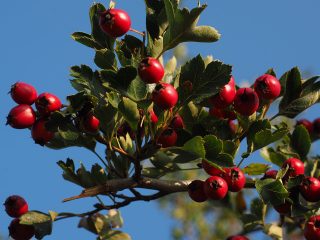Content
Many gardeners cultivate Slivolistny hawthorn on their plots. This plant is especially decorative throughout the growing season. In addition to external signs, hawthorn gives a good harvest of edible fruits. The plant is unpretentious, does not require care.
Description of the hawthorn
The hybrid can be grown in the form of a tree or shrub. The height of Slivolistny hawthorn is from 5 to 7 m. The plant has a rather spreading asymmetrical crown, about 5 m in diameter. Skeletal stems have dense branching. On young bushes, shoots grow up to 25 cm per year, then the growth rate slows down.
Mature trees or shrubs are dense and compact. This is achieved with timely haircuts. The trunk of the hawthorn is of slate brown color, the bark is smooth with a large number of long curved spines (their length is about 5-6 cm).
The hawthorn variety Slate crataegus prunifolia is distinguished by its large elliptical leaves. In spring and summer, the leaf plates are dark green, glossy. The upper part of the leaf is shiny. By autumn, the color changes to a fiery orange or deep red.
Hawthorn bloom begins in May and continues in June. Inflorescences are whitish-yellow, collected in umbrellas. Fruit ripening occurs at the end of September - beginning of October.
The hawthorn berries are green at the beginning of the setting, but by the time they are harvested they turn blood red. The fruits of the variety are in the shape of a ball, inside there are drupe seeds. They are large - about 1.5 cm in diameter.
Stone fruits - "apples" of Slivolistnoy hawthorn are edible, firmly sit on petioles, retain their taste and useful properties until the New Year.
Variety characteristics
When choosing a type of tree or shrub for a site, gardeners, in addition to the description, are interested in some characteristics. This applies to the plant's resistance to drought, frost, diseases and pests. It is equally important to know what advantages and disadvantages the hawthorn variety with plum-like leaves has.
Drought resistance, frost resistance
The word "hawthorn" of Latin origin means "indestructible". The plant fully corresponds to the name, as it is drought-resistant and frost-resistant. The roots of the Slate Hawthorn are powerful, extend deep enough, they can always get water and food.
Only young trees or shrubs need to be covered for the winter and watered in a timely manner.
Productivity and fruiting
The hawthorn variety is fruitful. The fruits are suitable for jam, compotes. Like other hawthorn species, berries, leaves, flowers and bark have beneficial and medicinal properties. Fruiting of the Slivolistny hawthorn variety begins at 6-7 years.
Disease and pest resistance
The Slivolistny variety is resistant to many fungal diseases and pests. But one should not forget about prevention.At the slightest suspicion, shrubs are processed.
Advantages and disadvantages of the variety
The Slivolistny variety has the following advantages:
- decorativeness;
- berries with useful and medicinal properties;
- the versatility of the fruit;
- landing can be done in any region;
- variety Slivolistny is resistant to diseases and pests.
Of the shortcomings, gardeners in the reviews note the presence of large thorns that make it difficult to care and harvest. In the photo of Slivolistny hawthorn, these modified leaves are clearly visible.
Landing features
Planting seedlings of the Slivolistny hawthorn variety will not cause difficulties. The activities are almost the same as those required for any deciduous trees or shrubs.
Recommended timing
Young bushes of the Slivolistny variety are best planted in early spring, before the leaves have yet blossomed. During the growing season, the plant will have time to take root, will give the first growth. This shrub will overwinter successfully. Although the autumn planting of hawthorn is not prohibited. It is only necessary to plant a shrub after the completion of leaf fall.
Choosing a suitable site and preparing the soil
In its natural environment, the shrub grows in sunny open places.
As for the soil, it must be heavy and fertile. Before planting, dig up the site, remove the roots weeds... After that, a hole is dug, the bottom of which is covered with drainage from rubble, broken brick, gravel (about 15 cm). For hawthorn Slivolistny you need the following soil composition:
- sod land;
- humus;
- peat;
- sand.
In a ratio of 2: 2: 1: 1.
What crops can and cannot be planted nearby
Hawthorn Slate is a friendly plant, it grows with almost all crops, does not oppress them. The main thing is that the shrub has a sufficient feeding area. Although there are a number of fruit trees, the neighborhood of which is undesirable due to common pests, it is;
- apple trees;
- pears;
- cherries.
Selection and preparation of planting material
Selection rules:
- It is best to purchase seedlings at the age of 2-4 years, no more than 1.5 m in height, with a well-developed root system.
- There should be no damage on the trunk, signs of diseases with a glossy bark.
- If the seedlings are varieties with an open root system, then they are soaked for a day in water with potassium permanganate or in a solution that stimulates the development of roots. If you can't plant the plants right away, then the roots are wrapped in wet burlap and cellophane.
- Plants in containers also need to be prepared. The clod of earth is cut vertically to stimulate the growth of the root system.
Landing algorithm
When digging holes, they are guided by the root system of the plant: it should be twice as large.
How to plant:
- When planting, the seedling of the Slivolistny variety is not buried above the root collar.
- The earth around the trunk is tamped and watered abundantly.
- The trunk circle is mulched to retain moisture.
Follow-up care
The plant responds well to pruning, especially since it has the ability to form a large number of shoots. By trimming, you can get bushes of various shapes. A sanitary and shaping haircut is carried out in the spring, until the juice begins to move. Before wintering, you also need to cut off damaged shoots.
To feed this variety, boyars use organic and mineral fertilizers.
As for watering, young bushes especially need it. Adult plants are irrigated only if it is a dry summer.
Deep loosening of the trunk circle on a shovel bayonet is carried out in spring and autumn. The rest of the time, the procedure is combined with weeding after watering. They loosen the soil to a depth of no more than 10 cm.
Since the hawthorn is frost-hardy, adult plants do not require shelter for the winter.The trunks of young plantings are protected from frost and pests by wrapping them in burlap.
Diseases and pests, methods of control and prevention
The hawthorn variety Slipolistny, like other representatives of the culture, can be affected by fungal diseases:
- powdery mildew;
- perforated spotting;
- rust.
The main pests of the variety:
- ticks;
- weevils;
- sawflies;
- silkworm ringworm;
- apple and common aphids.
If the plants are not tall, or are grown as a hedge, they can be easily treated with special preparations. Adult hawthorn leaflet sprayed while standing on the stairs.
Application in landscape design
Landscape designers consider all varieties of boyarka to be convenient for creating an original design for gardens, parks, summer cottages. Plants can be planted singly, in group compositions. Many gardeners from Slivolistnoy hawthorn create hedges. To do this, the growth must be cut by half the length each year.
Conclusion
Hawthorn is easy to grow. You just need to find the right place and "reliable neighbors" for him. Throughout the growing season, there will be a decorative corner on the site.

